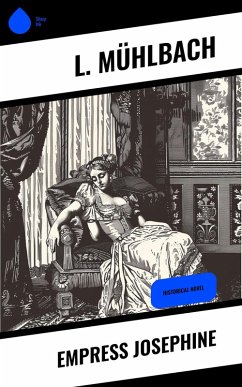
The Countess of Rudolstadt (eBook, ePUB)
Historical Novel
Übersetzer: Robinson, Fayette
Versandkostenfrei!
Sofort per Download lieferbar
2,13 €
inkl. MwSt.
Weitere Ausgaben:

PAYBACK Punkte
0 °P sammeln!
In "The Countess of Rudolstadt," George Sand crafts a rich tapestry of romance and existential inquiry set against the backdrop of 19th-century Europe. Through the lens of her multifaceted characters, Sand explores themes of love, sacrifice, and the tension between individual desires and societal expectations. Written with her characteristic lyrical prose, the novel employs a dynamic narrative style that oscillates between philosophical introspection and vivid descriptiveness, making it a quintessential example of Sand's contribution to the literary movement of Romanticism. The work resonates ...
In "The Countess of Rudolstadt," George Sand crafts a rich tapestry of romance and existential inquiry set against the backdrop of 19th-century Europe. Through the lens of her multifaceted characters, Sand explores themes of love, sacrifice, and the tension between individual desires and societal expectations. Written with her characteristic lyrical prose, the novel employs a dynamic narrative style that oscillates between philosophical introspection and vivid descriptiveness, making it a quintessential example of Sand's contribution to the literary movement of Romanticism. The work resonates with the founder's ideals of personal freedom and the pursuit of individual happiness amidst societal constraints, mirroring the turbulent social landscape of her time. George Sand, a pioneering feminist and figure in French literature, was well-acquainted with the complexities of love and identity, having navigated a life filled with passionate relationships and societal critique. Her own experiences as a woman in a predominantly male-dominated literary sphere fueled her desire to champion the positions of women and the importance of emotional honesty. Sand's extensive knowledge of philosophy and a commitment to exploring the human psyche deeply inform the thematic undercurrents present in this novel. Readers seeking a deeply insightful and emotionally resonant narrative will find "The Countess of Rudolstadt" remarkably relevant. With its intricate dialogues and profound character development, this novel invites exploration into the nature of love and the human condition. As a powerful reflection on personal autonomy, this work remains influential and is highly recommended for those interested in the evolution of Romantic literature and the exploration of gender roles in society.
Dieser Download kann aus rechtlichen Gründen nur mit Rechnungsadresse in A, B, BG, CY, CZ, D, DK, EW, E, FIN, F, GR, HR, H, IRL, I, LT, L, LR, M, NL, PL, P, R, S, SLO, SK ausgeliefert werden.












